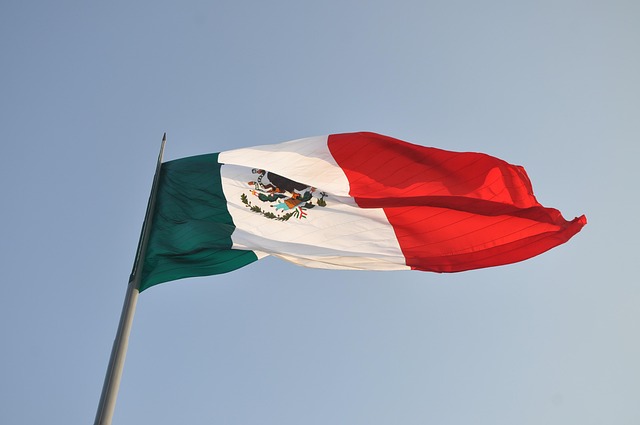Blog Series: A Patient’s Journey With My Medical Vacations – Chapter 4
Just when I was starting to feel confident in the idea of medical travel, I did what everyone does—I searched for the worst-case scenarios.
It didn’t take long.
A few headlines, a couple of news reports, and suddenly all my confidence seemed to fade. I was right back where I started—worried, doubtful, and asking myself the most common (and honest) question:
“What if something goes wrong?”
That’s the fear that keeps many people from even considering medical tourism. And to be honest, it nearly stopped me too.
But the deeper I looked, the more I realized that those horror stories—while not fake—were far from the norm. In fact, they were the exception, not the rule. And understanding the real context around them became the turning point in my journey.
The Reality Behind the Headlines
Let’s be clear—bad outcomes can happen anywhere, including in the U.S., Canada, and Europe. Every healthcare system in the world has its share of complications, malpractice cases, and system failures. What makes stories from abroad stand out is not that they’re more common—but that they’re more sensationalized.
News stories focus on what goes wrong. They rarely mention the thousands of patients who travel to Mexico every single week and return home healthier, happier, and grateful for the care they received.
Here’s what I learned through objective research:
- Over 1 million international patients travel to Mexico each year for medical care.
- The overwhelming majority experience safe, successful outcomes.
- The risk of serious complications when working with certified providers is comparable to—if not lower than—many U.S.-based procedures.
- Most negative cases involve unregulated clinics, poor planning, or a lack of follow-up—not the medical tourism system itself.
That’s when I realized something important:
It’s not about whether medical tourism is safe. It’s about how it’s done—and who you trust to guide you.
Not All Providers Are Equal—And That’s the Problem
One of the biggest misunderstandings is thinking that all clinics, surgeons, and agencies in Mexico are the same. But just like in the U.S., quality varies widely.
This is where most patients get into trouble: trying to manage everything themselves, without knowing who’s accredited, who speaks English, who has hospital privileges, or whether post-op care will be included.
It’s not that medical tourism is inherently risky—it’s that going in without a trusted partner increases the chance of error.
That’s why I chose to work with My Medical Vacations. Because with MMV, everything is based on a fully vetted network of:
- Board-certified surgeons with national and international credentials
- Modern, accredited hospitals and surgical centers
- Licensed bilingual nurses and care coordinators
- Post-op monitoring, emergency protocols, and follow-up care
They didn’t just talk about safety—they built it into every layer of the experience.
The MMV Difference: Why Structure = Safety
One of the biggest things that put my mind at ease was learning how MMV controls every aspect of the patient journey.
They aren’t just booking surgeries—they’re building systems that protect you at every stage:
- Pre-surgery screening: You don’t just get a date—you get a full medical review and clearance process.
- Logistics and transportation: You’re not hopping in random taxis or guessing where to go. Every ride is planned.
- Recovery and aftercare: You stay in surgeon-approved accommodations or MMV’s private recovery homes, with nurses by your side.
- 24/7 support: If something unexpected happens, you’re never alone. Someone is always one call or text away.
- Ongoing follow-up: MMV tracks your recovery with surgeon check-ins even after you return home.
This structure eliminates the guesswork and minimizes the very risks that lead to negative outcomes in unregulated cases.
Why Fear Is Normal—But Not Always Useful
It’s okay to be afraid. Surgery is personal, and traveling for it can feel overwhelming. But if fear is based on incomplete information, it can stop us from making a decision that could genuinely improve our lives.
What helped me move forward was looking at the full picture:
- I didn’t ignore the risks—I evaluated them.
- I didn’t dismiss the bad stories—I put them in context.
- I didn’t take a leap of faith—I made an informed decision with a professional team by my side.
When you approach medical travel with the right preparation, guidance, and support system, the results can be life-changing—and far more consistent than you might think.
A Safer Way Forward
The truth is, medical tourism isn’t inherently risky.
Unstructured, unsupported medical tourism is.
That’s the key difference.
With My Medical Vacations, I wasn’t just handed an itinerary—I was given a coordinated experience built around safety, trust, and professionalism. That’s what helped me separate fiction from fact—and make a decision I could feel confident in.
If You’re Still Worried, That’s Normal. Let’s Talk About It.
The MMV team is here to answer your questions—no pressure, no sales pitch, just real guidance from people who understand what you’re feeling.
They’ve helped thousands of patients travel safely for surgery, and they’re ready to walk you through how it works—step by step.
Contact My Medical Vacations Today
- Phone (USA/Canada): +1 888 587 9341
- Phone (Mexico): +52 998 387 0152
- Email: info@mymedicalvacations.com
- Instagram Direct Message: @mymedicalvacations
- Get Your Free Quote: https://mymedicalvacations.com/medical-tourism-free-quote/
 USA & CAN:
USA & CAN: 





